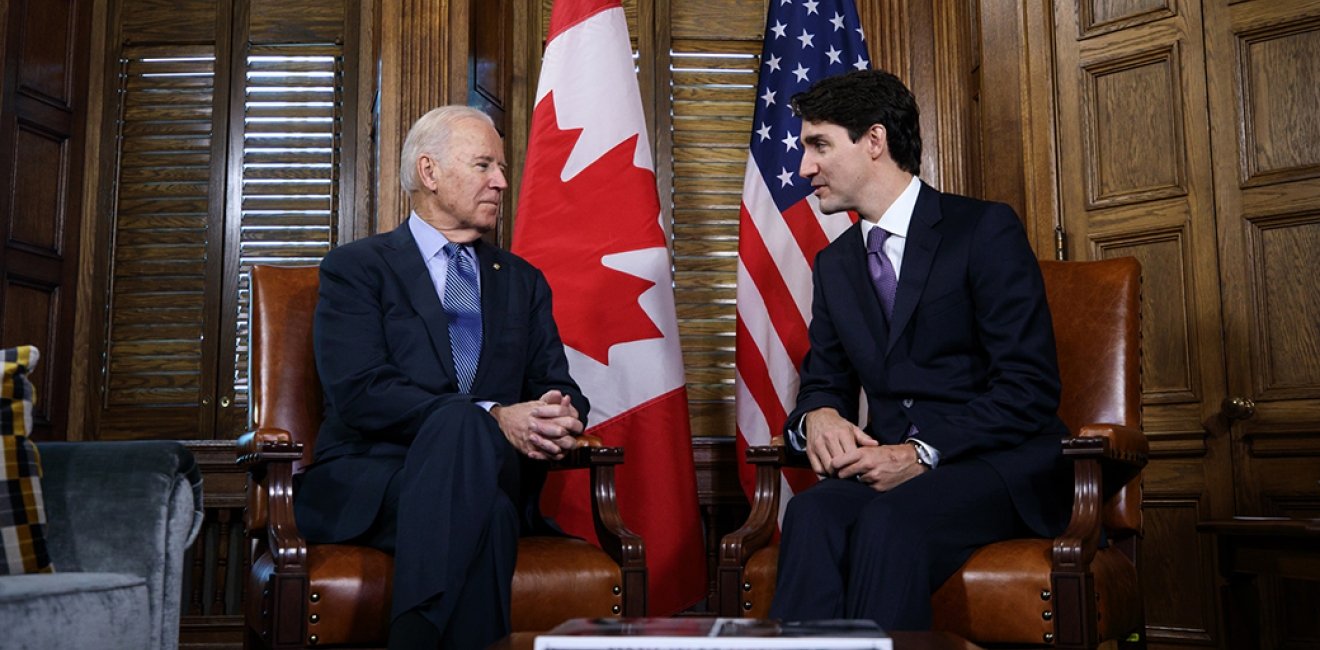This piece was first published in The Ottawa Citizen.
Once upon a time, a visit from the President of the United States to Ottawa was an event. It was the first foreign trip a new president would make, early in his presidency. It celebrated the world’s most successful relationship.
And why not? A generation ago, presidents and prime ministers did not speak to each other as often as they do now. They didn’t confer, tête-à-tête, on the margins of annual summits, as they do now. They talked less, met less. When they gathered, it mattered.
No longer. We may call these “state” visits, “official” visits or “working” visits, but they are a courtesy call. A duty. A gesture.
Richard Nixon and George W. Bush, for example, did not make official or state visits to Canada until well into their administrations. Gerald Ford, Jimmy Carter and Donald Trump did not visit Ottawa at all.
Joe Biden has been in no hurry to come here; he visited 18 or so countries, including Ukraine, in his first two years in office. He did make Justin Trudeau his first virtual meeting as president with a foreign leader, and the two have met around the globe, just not in Ottawa.
Biden is coming here for 24 hours. Notably, he is staying overnight. He could have flown in and out on Air Force One, but he and Jill will spend a cozy evening at Rideau Cottage, chatting with Justin and Sophie. You know, like family.
There are no incendiary issues. Twenty years ago, Canada refused to follow George W. Bush and the U.S. into Iraq in the coalition of the naïve. The Americans were annoyed.
Five years ago, Canada worried that Trump was assaulting the liberal international system. We feared his swaggering protectionism (free trade), as well as his attacks on multilateralism (the UN), climate change (Paris Agreement) and collective security (NATO). And, his searing personal insults. Relations fell to a new low.
The Canada-U.S. relationship is good today. It matters that both leaders are progressives, who see things the same way. The reliable rule of thumb obtains: Historically, Democratic presidents do well with Liberal prime ministers, which is the case here, and Conservative prime ministers do well with Republican presidents.
Yes, Biden and Trudeau will discuss softwood lumber, electric vehicles, critical minerals, climate change and illegal migration, especially at Roxham Road in Quebec.
Biden will raise continental defence, seeking a commitment to rebuild NORAD and take a leadership role in Haiti. More broadly, he will want us to spend more money on national defence — so we can play a bigger role in a dangerous world. An old lament, with fresh urgency this year.
The centrepiece of the visit is the president’s address to Parliament. Biden — old, discursive and avuncular — can still give a good speech. Here is his opportunity to stand where John F. Kennedy, Bill Clinton, Barack Obama and other predecessors stood, to talk powerfully and eloquently about what the relationship means in 2023.
The longest unmilitarized border in the world may be a cliché, but it is something special. Canada and the U.S. have the strongest, richest and most enduring friendship of any two countries today, and it has new meaning.
We fought together in the Great War, the Second World War, Korea, Kosovo, the Persian Gulf and Afghanistan. We have forged a bond of two people, different in ways but always embracing a belief in democracy and human rights.
In a fraying time of rising authoritarianism, this matters. As the cynical leaders of an expansionist Russia and a menacing China meet in Moscow, these two leaders offer a robust contrast, in Ottawa, standing steadfastly with Ukraine and the western alliance, which Biden has rallied and expanded.
What we have in North America is indispensable. It is unique in its size, power and influence. Against the odds, it endures.
Let Biden say that, with the best words he can. Let him deliver an address that celebrates freedom and friendship in this new reality, and make his visit truly memorable.






